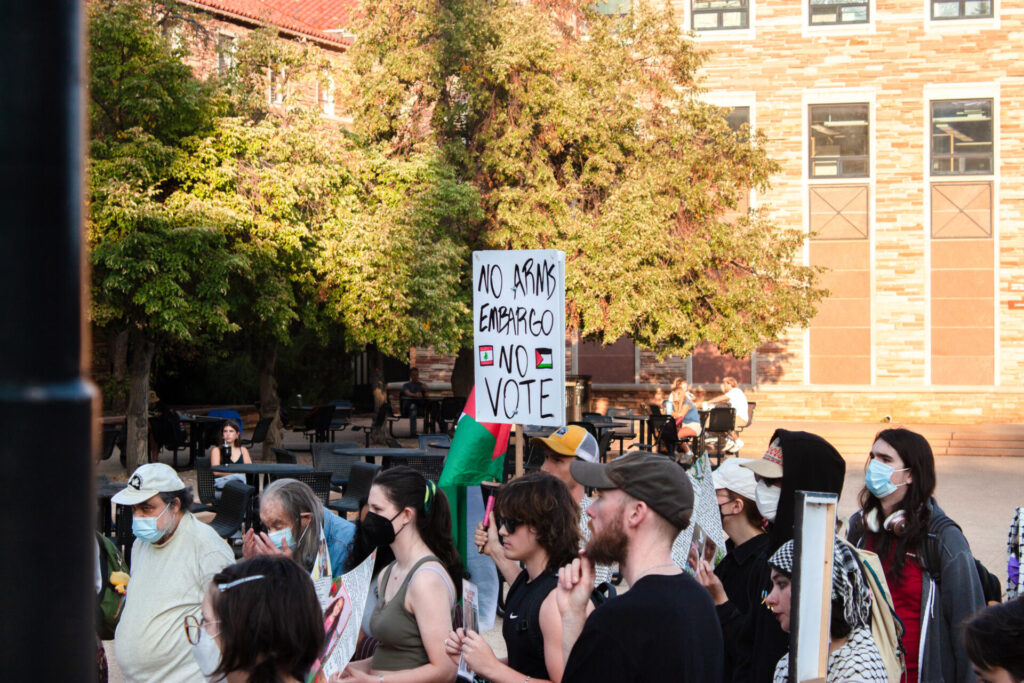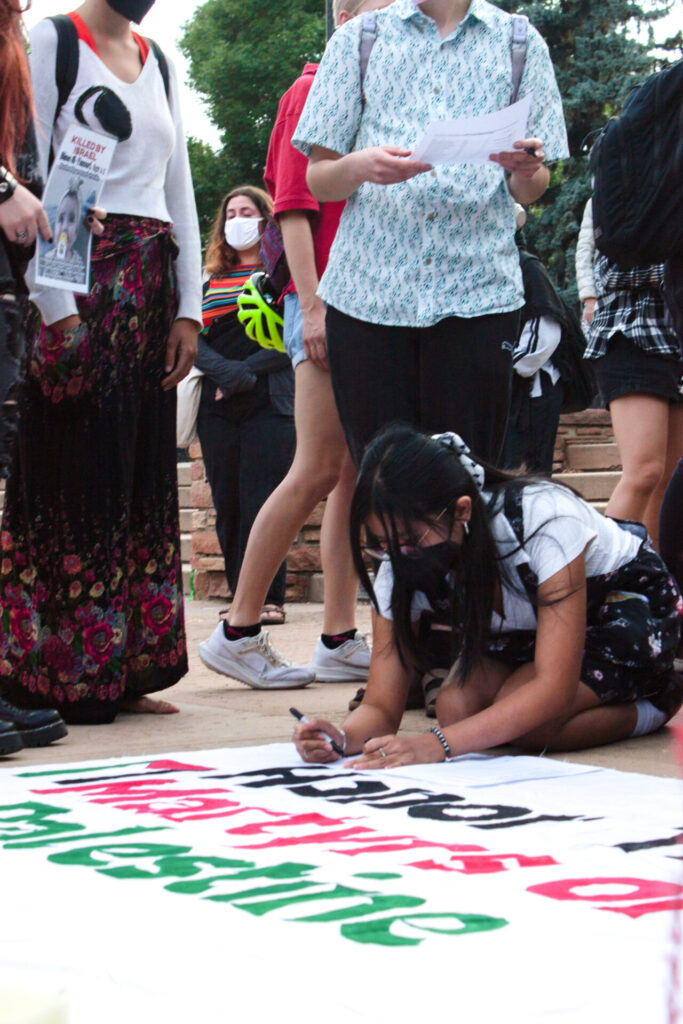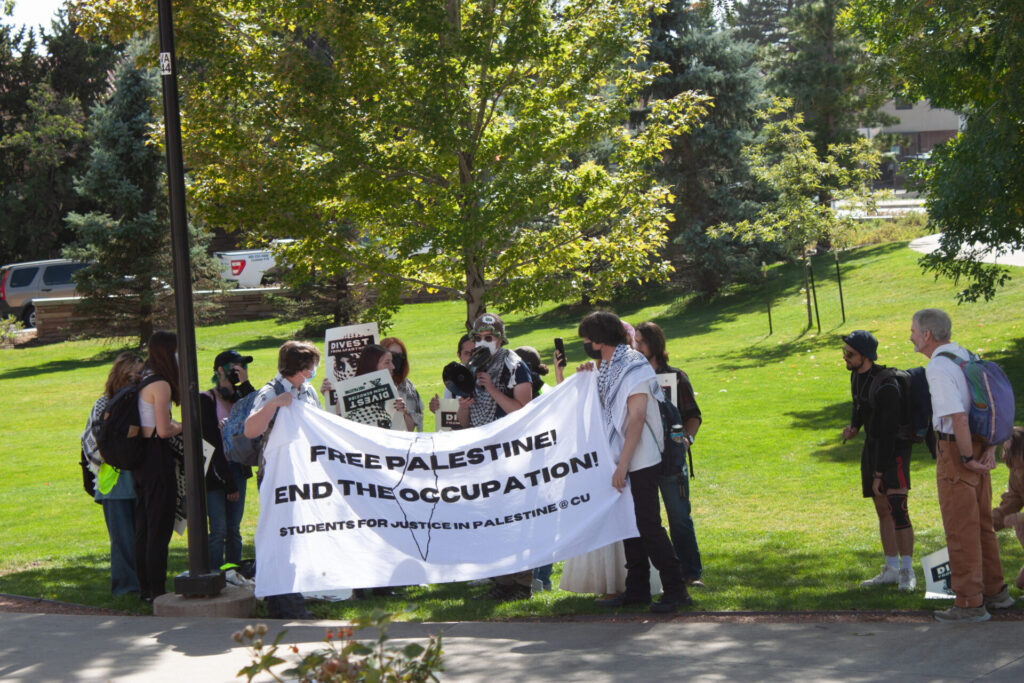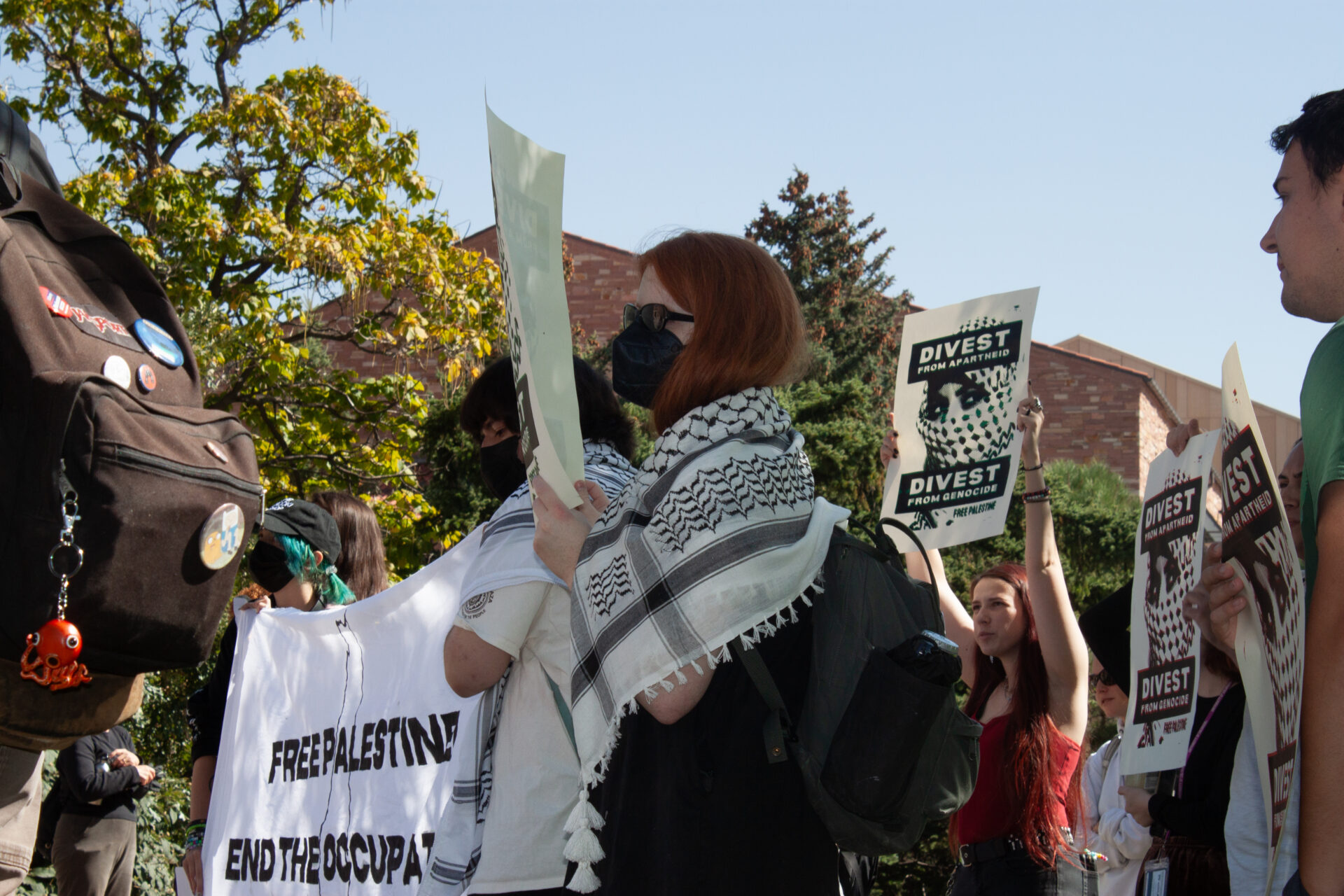By Sophia Gyuk

Photo by Sophia Gyuk
Walkout at 11:30, rally at 12! A poster with these instructions distributed by CU’s chapter of Students for Justice in Palestine called for participation in their kickoff of what colleges around the country are calling “rage week,” a national week of protest against the U.S.’s support towards the Israeli government’s attacks on Palestinian civilians.
As if choreographed, at noon on Tuesday, Oct. 8, a crowd began to form at the Dalton Trumbo fountain outside the University Memorial Center at the heart of CU Boulder’s main campus. Protesting students, many of whom were masked and wearing a keffiyeh, a traditional Palestinian headscarf, stood in ranks around speaker Aya, a student member of SJP and a passionate activist for the cause. Aya spoke through a megaphone, urging for the university’s divestment from companies that fund Israeli military efforts until the injustice is resolved.
“CU Boulder, you can’t hide, we charge you with genocide,” she said, leading the group in chanting.
As the rally drew attention, police and faculty arrived to monitor the commotion and mitigate any conflicts.
“The CSI members who watch us have not been kind to us in the past,” Aya said, mentioning an incident in which she and fellow SJP members had been called terrorists and followed to their cars by counterprotesters at a vigil on Oct. 7.

Photo by Sophia Gyuk
SJP held the vigil to mark one year since Hamas’ attack on Israel, mourning the loss of lives in both communities. She went to Center for Student Involvement faculty members – who are mandatory reporters, as per CU employee code – supervising the vigil to report the verbal attack and was told they would report it to the Office of Institutional Equity and Compliance. However, when no action was taken, Aya went to OIEC herself and reported the Islamophobic remarks, which classify as harassment of a protected class, a punishable offense according to OIEC’s Protected Class Nondiscrimination Policy. The antisemitism and anti-Islamic harassment statement issued by CU’s Chief Compliance Officer this year states that directed speech including severe “slurs and stereotypes” will be dealt with by campus or system authorities, but doesn’t specify how.
Days before the vigil, on Thursday, Oct. 3, SJP members protested CU’s endorsement of defense companies which have been involved in the production of missiles used by the Israeli Defense Force against Palestinian civilians. The protest took place at a CU-sponsored career fair held to spotlight opportunities in the aerospace engineering major and allow employers of companies in the field, including Lockheed Martin and RTX, to recruit future employees. What began as a peaceful protest, with SJP members holding signs and voicing their grievances, escalated and eventually culminated in the students being forcefully evacuated from the building. What happened on Oct. 3 was part of an ongoing pattern of CU’s censorship of SJP, “but this one was an escalation,” Aya said.
“It was a clear violation of the student code of conduct,” said Nicole Mueksch, Director of Issues Management and spokesperson for CU’s strategic communications department, referring to SJP members’ use of a megaphone inside the building the fair was held in.
It is true that the use of voice amplifiers in an enclosed space is prohibited for student organizations. However, in this situation, a case is being argued for the application of civil disobedience. Some students take issue with CU’s no-exceptions policy regarding protests and rallies, and feel the university should work to protect more forms of free speech, rather than only silent protests.
Freshman Charlie Soboroff, who was watching the protest from afar for fear of their safety, said “I want to be able to speak freely… without being worried.” Soboroff emphasized the importance of CU allowing varied forms of protest. It is up to those who have the privilege to “make a voice” for the vulnerable, they said.

Photo by Sophia Gyuk
SJP wants CU administrators to know that they won’t stop protesting. Aya emphasized that the most important thing about the protest — why it meant so much — was that students showed up. SJP’s ultimate goal is to get CU to end relationships with companies that are contributing to harm done in the West Bank, especially those that bring the university financial gain.
“We’re trying to hit them where it hurts,” Aya said. “We want them to divest, we want them to stop making money off of war.”

